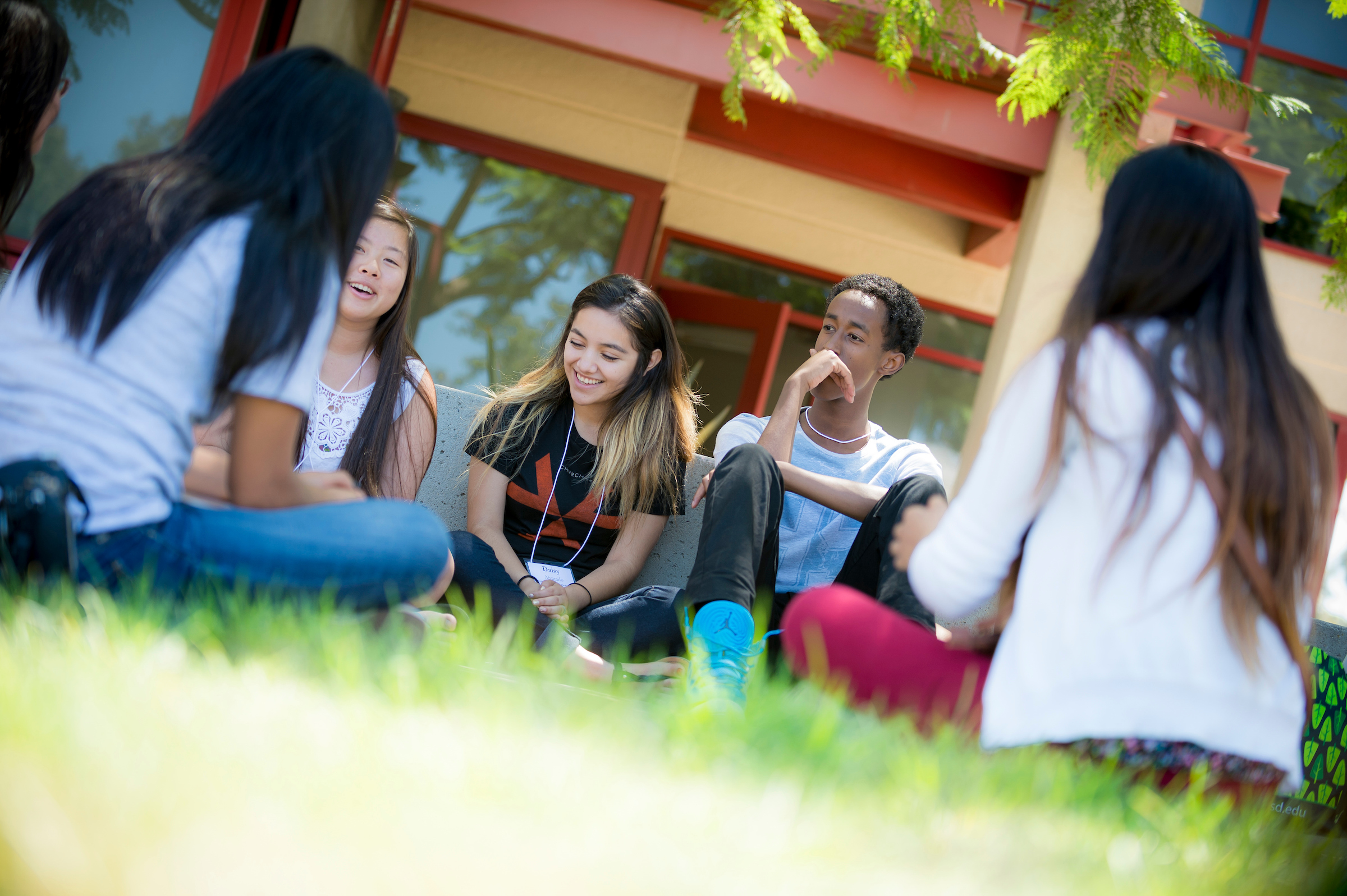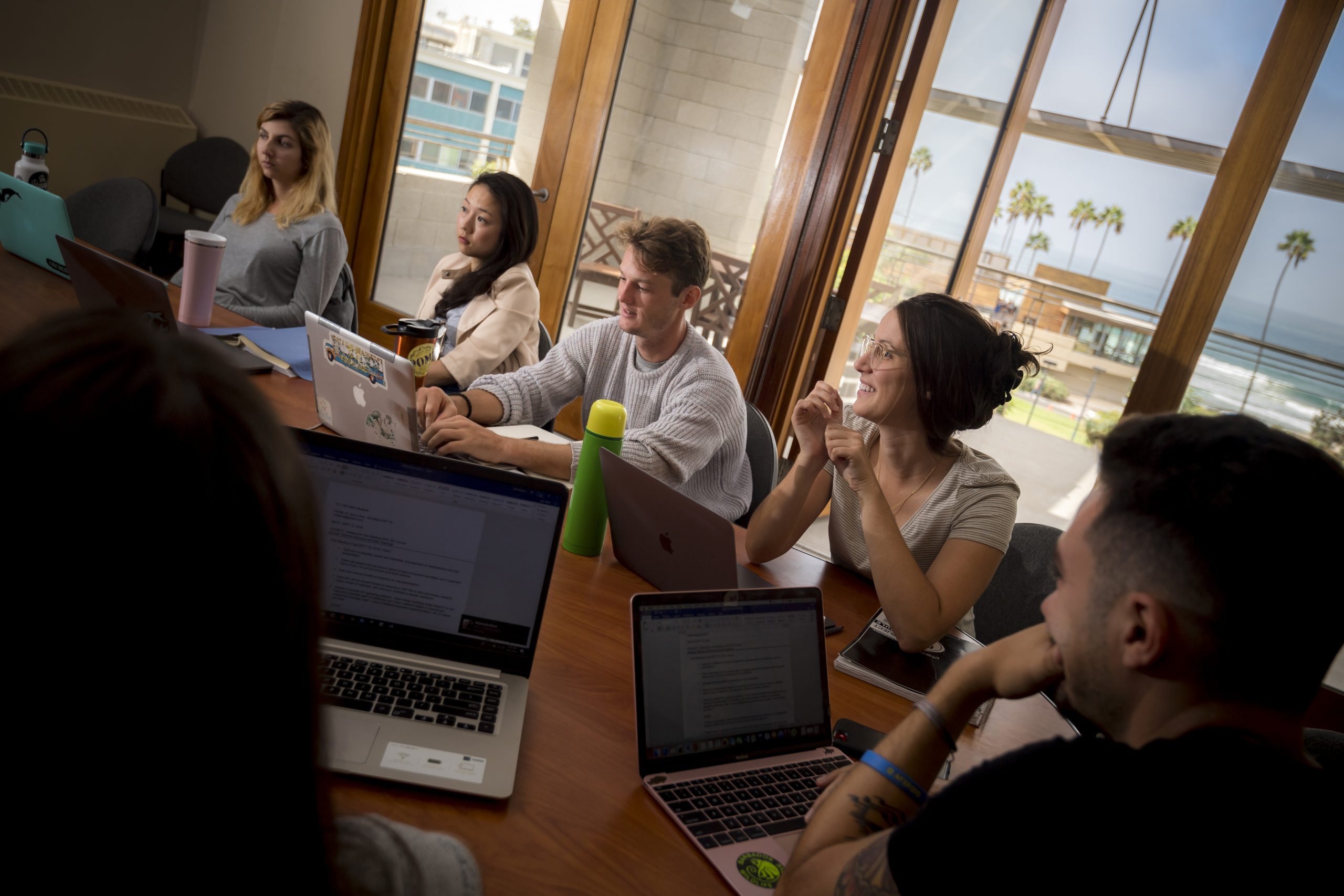
Theme 5: Education to broaden participation
Theme area 5 will focus on the education efforts of the hub. It will be led by Drs. Nan Renner and Cheryl Peach, with participation from partners at Birch Aquarium, CREATE, and the San Diego Science Project.
Local educators, their students and those students’ families are important stakeholders in this project and will participate as key community partners in our hub. To engage these stakeholders and to broaden participation in STEM, our education program will reach out to communities most impacted by extreme heat in coastal cities, focusing our efforts on high school teachers and students. Building on pre-existing, long-term collaborations with local school districts and the San Diego County Office of Education, we will focus on high schools in geographic areas that are historically under-resourced, incorporating learner-centered culturally responsive pedagogy.
Over the grant's lifetime, we estimate ~125 high school science and computer science teachers from existing hub PI networks will participate in professional learning and engage ~11,000 diverse high school students in various aspects of research on urban heat impacts and solutions, including data science activities such as data collection and analysis related to microclimate features, temperature, and human health.
Our education efforts will use validated best practices in pedagogy, i.e., alignment with Next Generation Science Standards and Environmental Principles and Concepts, and 5E student-centered active-learning lesson design: Engage, Explore, Explain, Evaluate, Elaborate.


Education objectives:
Five main objectives comprise the high school education plan:
- Year 1: Front-end evaluation, planning, and process design
- Year 2: Develop and pilot curriculum
- Year 2: Pilot data science education activities
- Year 3: Field test and refine curriculum
- Years 4 & 5: Scale up, professional learning for teachers
Partnerships:
In addition to high school-level education efforts, the hub will partner with other programs aimed at college students.
Scripps-GEO:
The Scripps-GEO GEOPAths project is focused on increasing the diversity and number of undergraduate students pursuing geoscience-related pathways. Our hub will provide opportunities for local community college student internships. The hub hopes to provide career-relevant projects, mentorship, valuable connections to community partners, and opportunities for development of relevant workforce skills. This paid research will provide invaluable hands-on experience in the climate and geosciences to students who normally would not receive such opportunities, and will help prepare them for future thesis work and/or careers in these fields.
MAS CSP:
The hub will additionally partner with SIO's Master of Advanced Studies (MAS) in Climate Science and Policy (CSP) degree program to offer support to students interested in conducting thesis research in subjects aligned with the objectives of the hub. MAS CSP students will work directly with Hub researchers, community partners and STEM educators to develop their own original research projects centered on topics in environmental justice, atmospheric science, data science, and policymaking.
